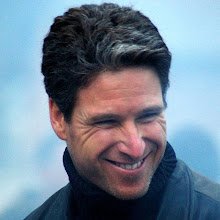"As for the other ingredients typically found in energy drinks — such as the amino acid taurine, the herbal stimulant guarana and extracts of the plants ginseng and yerba mate — the jury is still out.
"There is scant scientific support for these ingredients to make the kind of claims manufacturers use in hyping their products," says Farrell. "Most of the energy from these drinks comes from the sugar and caffeine, not from the unnecessary extras."
--First, Energy Drinks are caffeine drinks, which is why "sugar-free" energy drinks still provide the same basic buzz. The sugar is equivalent to a sugar soda, and is not responsible for the "energy effect" of the drink, although it does give you short-lived sugar boost and crash.
Second, there have been lots of studies done on Taurine, and the jury is in: Taurine does not give you energy nor multiply the energy from caffeine. You can take several times the amount in an energy drink and experience NO energy boost. Its other effects are minor - neuroprotective effects, relaxing muscle groups, etc., but not energy.
Further, Guarana and Yerba Mate are both sources of caffeine, and hence the jury is in - caffeine has dramatic effects on the nervous system. However, most drinks don't have enough Guarana or Yerba Mate to make much of a difference, so the manufacturers add pure caffeine to the drink but don't mention it, focusing on the guarana and yerba mate on the label.
In this sense, the claims of guarana and yerba mate *in drinks* are largely hype. On the other hand, these ingredients *in pill form*, CAN be sufficiently concentrated to give enough caffeine to give you the standard caffeine rush, plus they have other minor stimulants such as theophylline and theobromine, which are reputed to give a more pleasant effect to the caffeine.
However, if you want a really pleasant experience of caffeine, you need to go the way of smart energy drinks add ingredients that have been shown to change the biochemistry of how the brain processes the caffeine, to enhance the positive energy and pleasure of caffeine, while minimizing the negative side-effects of tense/jitters while it is active and lethargy/crash when it wears off.
~ Your Smart Energy Drinks Watchdog

